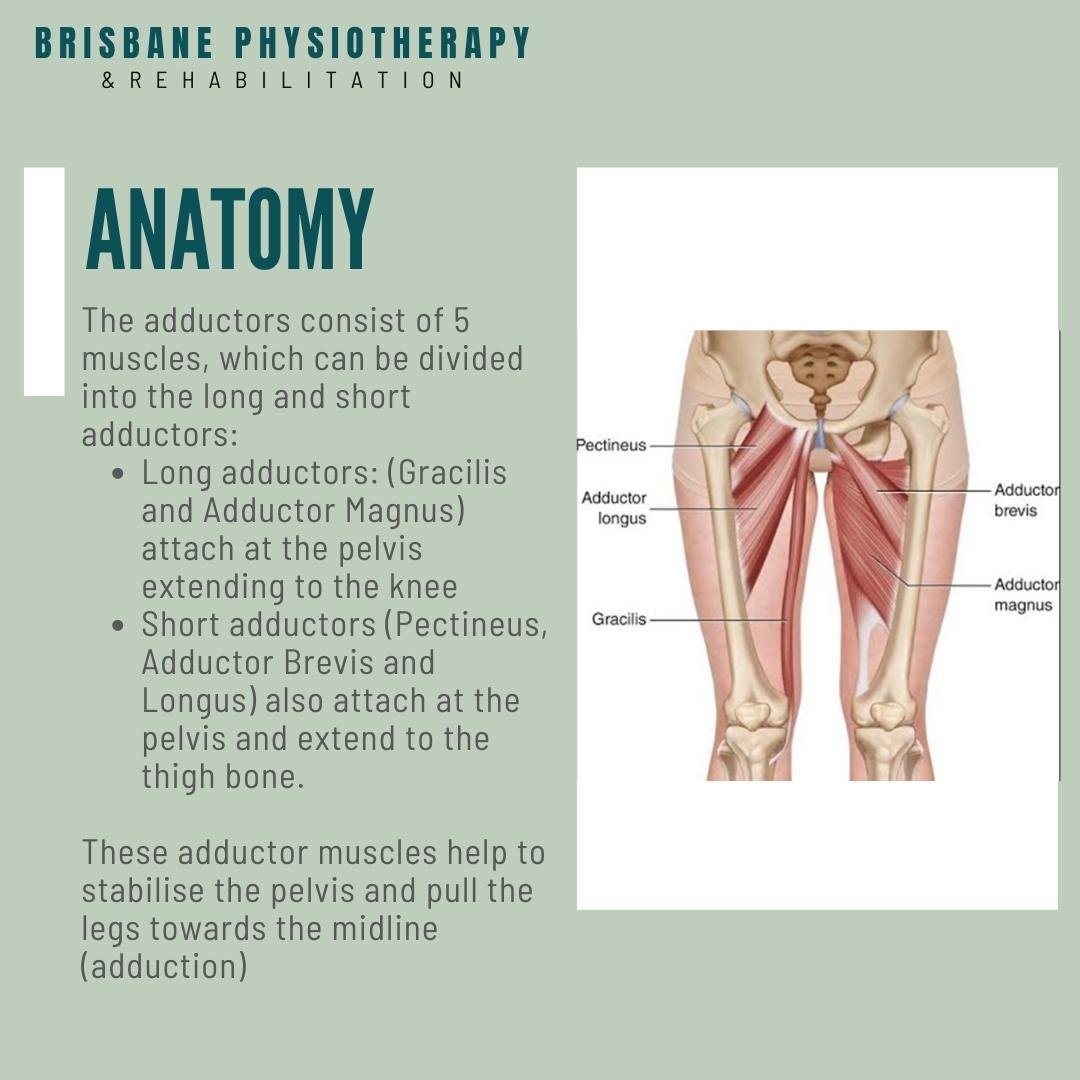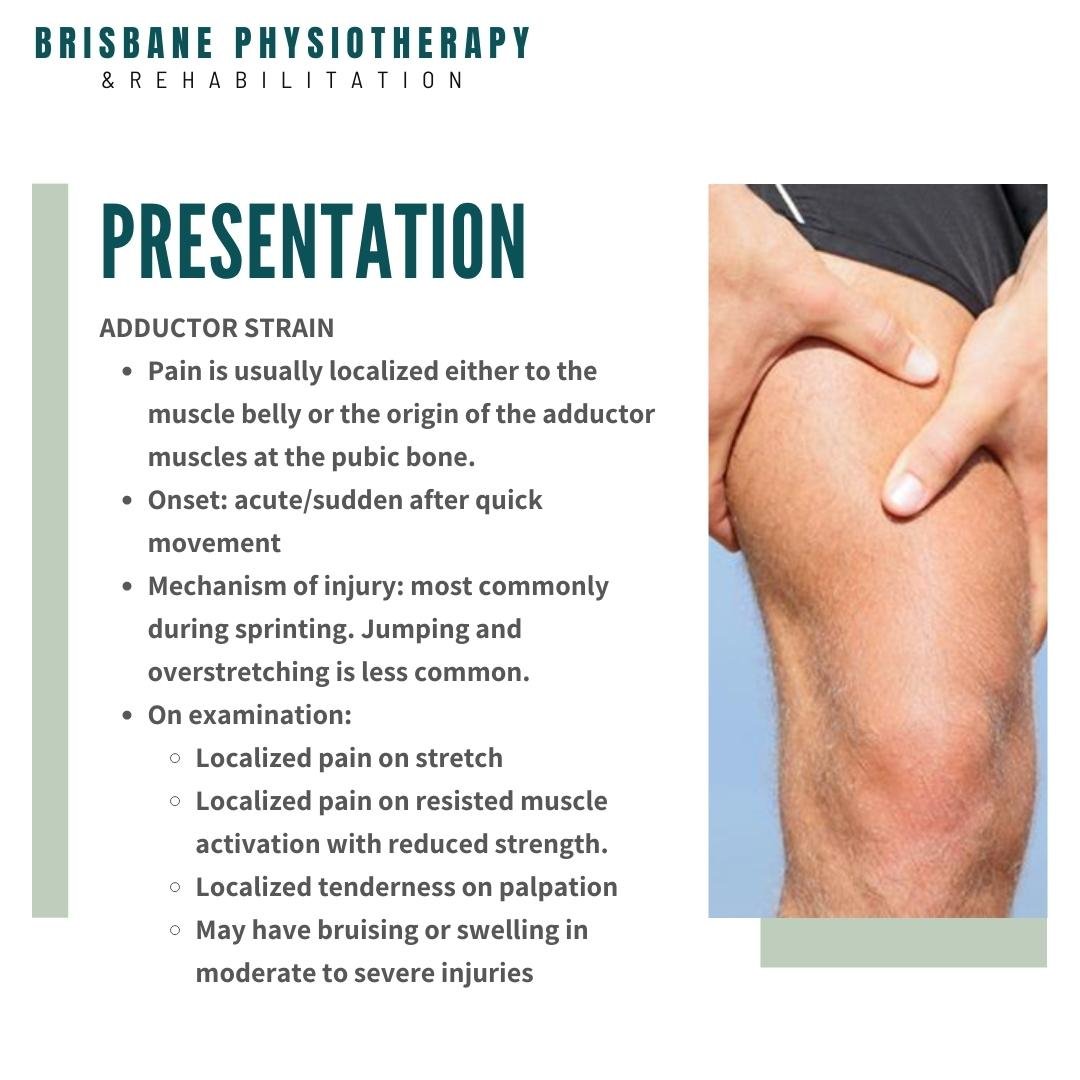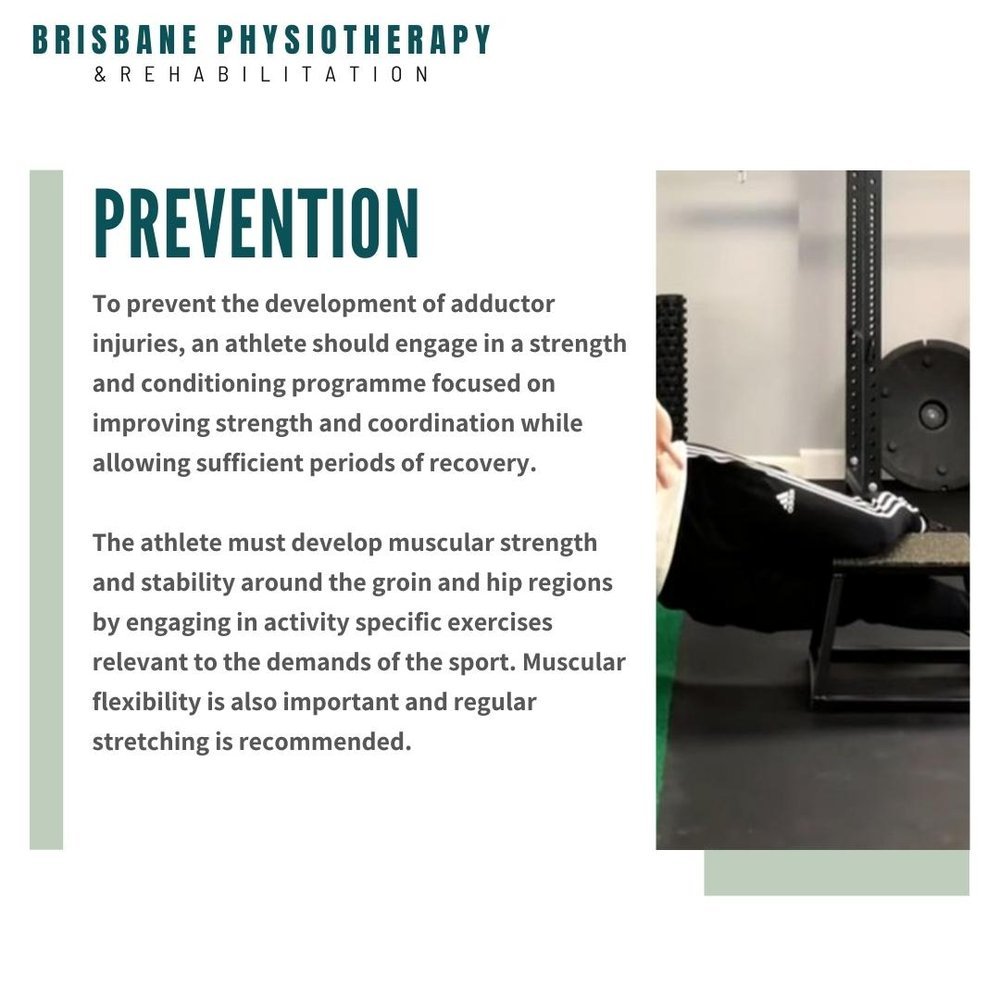Adductor Muscles
Adductor Muscles Anatomy
The adductor muscles are a group of muscles located on the inner side of the thigh. They include the adductor longus, adductor brevis, adductor magnus, gracilis, and pectineus muscles. These muscles are responsible for bringing the legs together, a movement known as adduction. They also play a crucial role in stabilising the pelvis and hips during various activities such as walking, running, and jumping and pull the legs towards the midline (adduction). The adductors consist of 5 muscles, which can be divided into the long and short adductors:
Long adductors: (Gracilis and Adductor Magnus) attach at the pelvis extending to the knee
Short adductors: (Pectineus, Adductor Brevis and Adductor Longus) also attach at the pelvis and extend to the thigh bone.
The Importance of having Strong Adductor Muscles
Having strong adductor muscles is important for several reasons:
Stability: Strong adductor muscles help stabilise the pelvis and hips, which is crucial for maintaining proper alignment and preventing injuries during movement.
Balance: These muscles contribute to maintaining balance, especially during activities that involve shifting weight from one leg to the other.
Functional Movement: Adequate strength in the adductor muscles is essential for performing everyday activities such as walking, climbing stairs, and getting up from a seated position.
Physiotherapists often prescribe exercises to strengthen the adductor muscles for various reasons:
Rehabilitation: Strengthening exercises are often a key component of rehabilitation programs for injuries involving the groin, hips, or knees. Strengthening the adductor muscles can help improve stability and reduce the risk of re-injury.
Prevention: Strengthening the adductor muscles can help prevent adductor muscle strains & injuries, especially in athletes who participate in sports that involve rapid changes in direction or kicking movements.
Improving Performance: Strong adductor muscles can enhance overall athletic performance by improving power, agility, and coordination.
Conditions or injuries that strengthening the adductor muscles can help with include:
Groin Strain: This is a common injury among athletes, particularly those involved in sports that require quick changes in direction, such as soccer, basketball, and hockey. Strengthening the adductor muscles can help prevent groin strains and aid in the rehabilitation process.
Hip Instability: Weak adductor muscles can contribute to hip instability, which may lead to other issues such as hip impingement or labral tears. Strengthening these muscles can improve hip stability and reduce the risk of such problems.
Knee Pain: The adductor muscles play a role in stabilising the knee joint. Strengthening them can help alleviate knee pain and prevent injuries such as patellar instability.
Overall, strengthening the adductor muscles is important for maintaining lower body stability, preventing injuries, and improving athletic performance. Physiotherapists tailor exercise programs to address individual needs and goals, helping individuals recover from injuries and enhance their overall physical function.
What is an Adductor Strain or Adductor Injury?
Adductor Strain Description
Adductor muscle strains are a common cause of medial leg and groin pain especially in athletes engaged in sports that involve sudden changes of direction (football, hockey).
Adductor tendinopathy may begin as a primary condition or, alternatively, may occur secondary to an adductor muscle strain.
Presentation
Adductor Strain
Pain: Pain is usually localised either to the muscle belly or the origin of the adductor muscles at the pubic bone.
Onset: acute/sudden after quick movement
Mechanism of injury: most commonly during sprinting. Jumping and overstretching is less common.
On examination:
Localised pain on stretch
Localised pain on resisted muscle activation with reduced strength
Localised tenderness on palpation
May of bruising or swelling in moderate to severe injuries
Adductor Tendinopathy
Pain: Groin pain occurs at the origin of the adductor muscles at the pubic bone. Pain develops after a bout of increased physical activity. Untreated the pain tends to persist during activity and may migrate to the other side or towards the pelvis.
Onset: pain can develop gradually or appear as and acute, sharp pain
On examination:
Tenderness over the adductor muscle origin and over the pubic bone
Pain on stretch
Pain on resisted muscle activation
Swelling observed along the affected muscle
Risk Factors
Previous hip or groin injury
Weak adductors
Muscle fatigue
Decreased range of motion
Inadequate stretching of the adductor muscle complex
Adductor Injury Management
Treatment
Manual therapy:
Soft tissue release of adductor muscles and hip muscles
Exercises progression:
Commences with initial reduction of swelling and inflammation by using the RICE regimen (rest, ice, compression, elevation) and active pain-free exercises.
Progressive strengthening exercises are then commenced after 48hrs.
Active abduction/adduction
Resisted Adduction/flexion
Stabilisation exercises
Functional strengthening
Stationary bike
Pool running
Jogging
Swimming
Once passive range of motion returns to normal with full strength activities involving rapid change of direction can recommence.
Running – straight line
Running – figure of eight
Rapid changes of direction
Kicking – gradually increase
Prognosis
Adductor muscle strain ~4-8 weeks
Adductor tendinopathy ~8-12 weeks
Preventing Adductor Injuries
To prevent the development of adductor injuries, an athlete should engage in a strength and conditioning programme focused on improving strength and coordination while allowing sufficient periods of recovery.
The athlete must develop muscular strength and stability around the groin and hip regions by engaging in activity specific exercises relevant to the demands of the sport. Muscular flexibility is also important and regular stretching is recommended.





